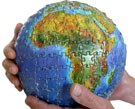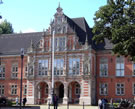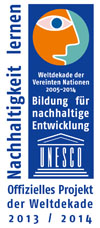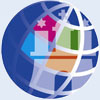Klimaportal der Lokalen Agenda 21 im Raum Harburg
The Decade of ESD, WAP and beyond
In December 2002 the General Assembly proclaimed the United Nations Decade of Education for Sustainable Development (DESD). It ran from 2005 to 2014.
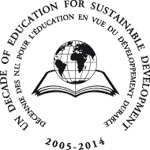 Referring to chapter 36 of Agenda 21 (1992) on the promotion of education, public awareness and training (as one of altogether eight means of Implementing Agenda 21), the UN decided to follow the respective recommendation in the Johannesburg "Plan of Implementation of the World Summit on Sustainable Development" (September 2002, chapter X, section 124.d). With this the UN underlined the fact that education plays a vital role in the attainment of sustainable development.
Referring to chapter 36 of Agenda 21 (1992) on the promotion of education, public awareness and training (as one of altogether eight means of Implementing Agenda 21), the UN decided to follow the respective recommendation in the Johannesburg "Plan of Implementation of the World Summit on Sustainable Development" (September 2002, chapter X, section 124.d). With this the UN underlined the fact that education plays a vital role in the attainment of sustainable development.
The major objective of DESD was to redefine educational goals in terms of sustainable principles, values and practices. It took the perspective of lifelong learning and should be integrated in all possible learning spaces (formal, non-formal, informal) catering for all possible learning ages.
The United Nations Educational, Scientific and Cultural Organization (UNESCO) was designated to act as the lead agency for the promotion of this 10-year-period and to develop a draft International Implementation Scheme (IIS) - basically a framework for all DESD partners across the world that pledged to contribute to the Decade.
In 2014, a successful decade on ESD came to a close. Yet, as the UN states in their final report in 2014, still more political and educational efforts are necessary to build a sustainable future. Thus, the UN adopted the Global Action Programme (GAP) on Education for Sustainable Development for the following five years (2015-2019). GAP aims to propel societal progress in support of the Sustainable Development Goals (SDGS) of the Agenda 2030.
The GAP defined the following priority action areas (as identified in the UNESCO "Roadmap for Implementing the GAP on Education for Sustainable Development"):
1. Advancing (educational) policies
2. Transforming learning and training environments (Whole Institution Approach WIA),
3. Building capacities of educators and trainers,
4. Empowering and mobilizing youth
5. Accelerating sustainable solutions at the local level
In November 2019, the UNESCO adopted a follow-up programme covering the next decade (2021-2030) to be launched in Berlin on May 1st, 2021 . The global framework entitled "ESD for 2030 − Education for Sustainable Development - Towards achieving the SDGs. A Roadmap" guides UN member states and other stakeholders to implement the 17 Global Goals..
Chris Baudy
![]()
For more information click on the links below:
Agenda 21
DESD in Germany
UN Resolution on DESD.
Final DESD report "Shaping the Future we want" (full length).
Final DESD report (summary).
UNESCO Roadmap (WAP).
UNESCO Global Action Programe ESD.
UNESCO Institute for Lifelong Learning
cb

